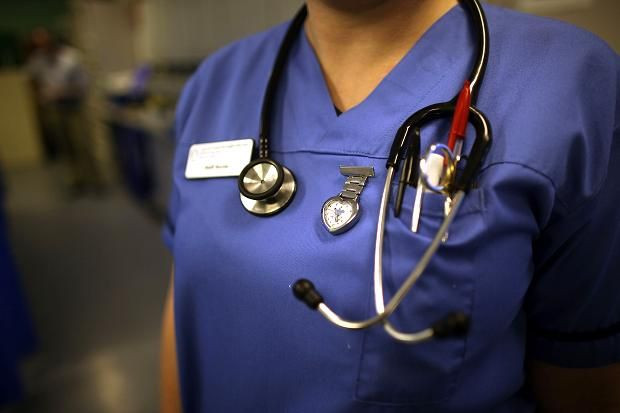Ebola In The US: Hospitals Aren't Prepared For Outbreak, Warns Nurses' Union

The Centers for Disease Control and Prevention tried desperately on Saturday to assure an anxious American public that health care workers are prepared for a possible Ebola outbreak. Most nurses on the front lines, however, aren't so sure.
Following news this week that a Texas hospital allowed an Ebola-infected patient to walk out of an emergency room with a simple prescription for antibiotics, the country’s largest nurses’ union warned that most U.S. hospitals still haven’t instituted a proper preparedness policy or even educated their caregivers about how to spot the potentially fatal virus.
In a strongly worded statement Friday, National Nurses United called on U.S. hospitals to "immediately upgrade" their emergency policies, citing preliminary data from a survey of almost 700 registered nurses working in 250 hospitals across 31 states.
The results of the study are pessimistic, to say the least. Of the nurses surveyed, a staggering 80 percent said their hospital “has not communicated to them any policy regarding potential admission of patients infected by Ebola.” Nearly 40 percent said their hospital has no apparent plans to properly equip isolation rooms, and a third said their hospital does not have sufficient supplies to treat the disease.
NNU, which said it began the survey several weeks ago, has been vocal about the imminent need for Ebola preparedness. “[W]e warned that it was just a matter of time in an interconnected world that we would see Ebola in the U.S.,” said RoseAnn DeMoro, the union’s executive director, in a statement. “Now, everyone should recognize that Texas is not an island either, and as we’ve heard from nurses across the U.S., hospitals here are not ready to confront this deadly disease.”
Ebola has resulted in thousands of deaths across West Africa. So far only one patient, Thomas Eric Duncan in Dallas, has been confirmed to have the contracted the disease in the United States. Earlier on Saturday, Texas Health Presbyterian Hospital, where Duncan was admitted, said he is in critical condition. Duncan, a citizen of Liberia, had initially visited a Dallas emergency room on Sept. 20, but he was released with antibiotics.
In a news briefing Saturday, Tom Frieden, director of the CDC, stressed the urgency of the situation but insisted that U.S. hospitals are up to the task. “We know how to stop outbreaks of Ebola,” he said. “In this country, we have health care infection control and public health systems that are tried and true and will stop before there's any widespread transmission.”
NNU disagrees. The union, which released the preliminary results of its study on Friday, said Duncan’s case “hardly provides any assurance” that most hospital staffers are trained with proper protocol.
Read the full statement and preliminary results here.
Got a news tip? Email me. Follow me on Twitter @christopherzara.
© Copyright IBTimes 2024. All rights reserved.






















